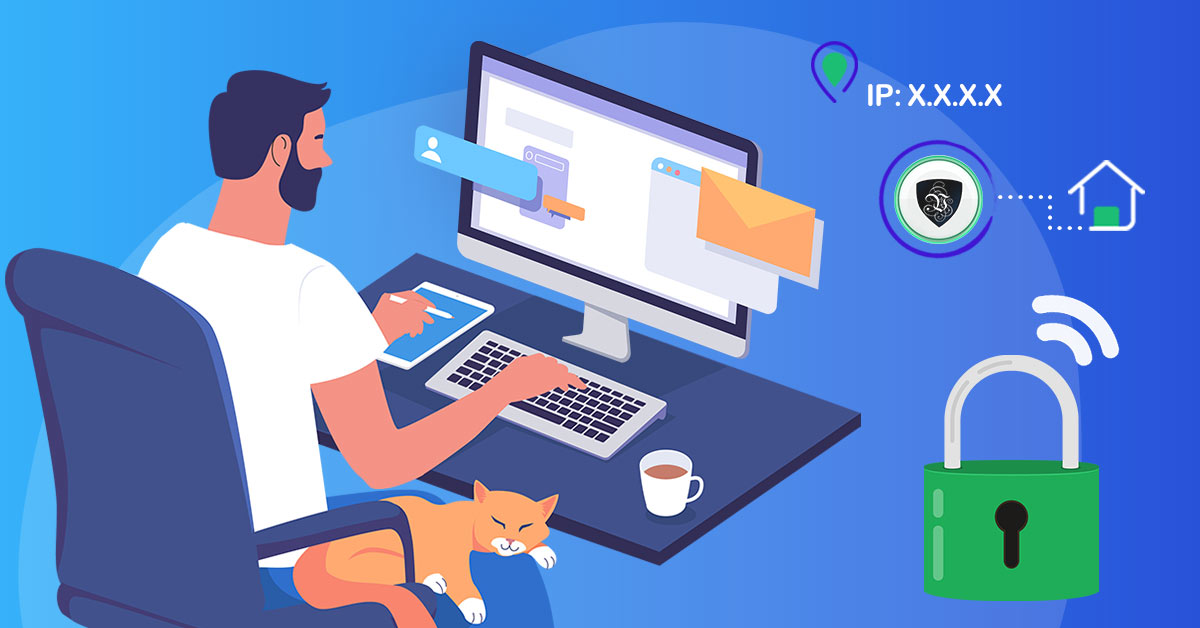The rise of remote work is unmistakable, and its impact is felt across various sectors. While it offers newfound freedom and flexibility, remote work also presents its own set of challenges, particularly in the realm of data security. Today, we’ll dive into how Virtual Private Networks (VPNs) serve as the guardians of your confidential data in a remote work environment.
Why the Surge in Remote Work?
The Remote Work revolution isn’t just a trend; it’s rapidly becoming the norm. Companies worldwide are recognizing the numerous benefits—increased productivity, employee satisfaction, and cost savings, to name a few. But as this work setup evolves, so do the complexities associated with safeguarding sensitive data.
The Importance of Data Security in Remote Work
When you’re working from an office, you are often protected by layers of security protocols that the company has established. These can range from firewalls to secured Wi-Fi networks. In a remote work setting, however, these boundaries become blurry. The risks of data breaches, hacking attempts, and unauthorized access to confidential data rise significantly.
Enter VPN: The Guardian of Data Security
VPNs are no longer a luxury; they’re a necessity, particularly when handling confidential data. These tools encrypt your internet connection, rendering intercepted data useless to hackers. It’s akin to sending a letter in a sealed, tamper-proof envelope rather than on an open postcard. Le VPN, for instance, provides robust solutions that ensure a secure tunnel for your data to pass through.
The Multi-Faceted Role of VPNs
Geographical Restrictions
VPN isn’t just a one-trick pony for security. It also helps circumvent geographical restrictions. Perhaps your job requires you to access databases or systems that are restricted to a particular location. A VPN can disguise your IP address, making it appear as if you’re operating from a different locale.
Layered Security
When you combine a VPN with other security measures like multi-factor authentication, you’re adding an extra layer of defense. This multi-tiered approach exponentially reduces the chances of security breaches.
Data Encryption
The encryption protocols VPNs offer are second to none. They convert your data into indecipherable text until it reaches its intended destination, essentially making it useless for any prying eyes.
Common Myths Busted
VPNs Slow Down the Internet
A well-configured VPN like Le VPN minimizes speed loss, providing you with a seamless browsing and working experience. And no, you don’t have to worry; we don’t offer phone support, but our digital channels are very responsive for any queries.
VPNs are Hard to Use
Modern VPNs are incredibly user-friendly. With one click, you can activate them and secure your data. The user interface is usually simple, ensuring you don’t need an IT degree to operate them.
As the landscape of work changes, your strategies to ensure data security should evolve too. VPNs stand as powerful tools in maintaining the integrity and confidentiality of your data. Especially in a remote work setting, they are not just optional; they are essential. By choosing a trusted provider like Le VPN, you not only enjoy secure data transmission but also the freedom to work from any location.
SUMMER SALE
First 3 years for $2.22/mo
NO LOGS
100+ LOCATIONS
P2P ALLOWED
Easy To Use
30-Day Money Back
Friendly Support
Bitcoin Accepted
Ultra High Speeds



